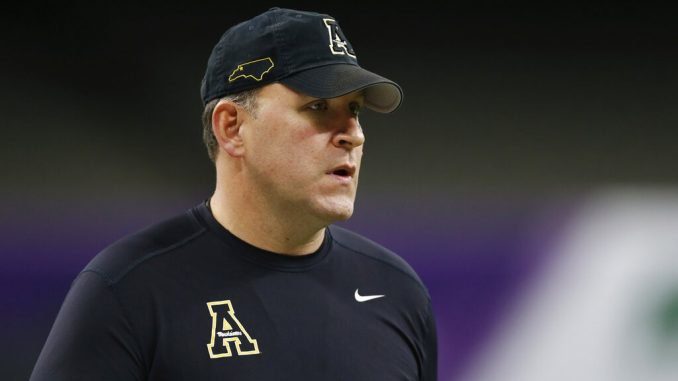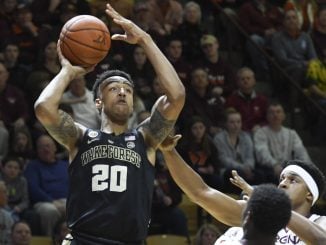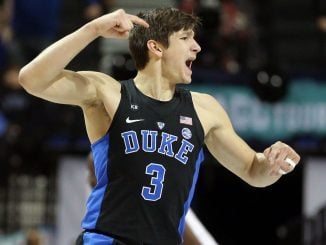
Phase 2 of the NCAA’s approved plan leading up to the 2020 football season went into effect on Monday, allowing players up to eight hours per week of weight training, conditioning and film review under the supervision of coaches.
But even as teams begin to ramp up their preparations for the fall, other recent developments make an on-time start seem increasingly less likely.
On Wednesday, the Ivy League and CIAA announced the cancellation of all athletic activities through the end of the calendar year. Shortly thereafter, the Big Ten and Pac-12 both announced their intention to play a conference-only schedule.
While the ACC and SEC have decided to hold off on a decision for another two weeks, it seems almost inevitable that some adjustments will have to be made considering recent trends in the ongoing COVID-19 outbreak.
In a statement issued last Thursday, ACC commissioner John Swofford said that the conference “has prepared numerous scenarios as related to the fall athletics season,” emphasizing that “the health and safety of our student-athletes, coaches and administrators remains the ACC’s top priority.”
Adhering to that policy, North Carolina announced that it has suspended its football team’s voluntary on-campus workouts after 37 of the 429 athletes, coaches and staff members that were tested for COVID-19 came back positive. The Orange County Health Department considers five or more related cases to be a cluster.
Those affected are required by the university to isolate for up to 14 days in a designated campus residence hall. Those identified as close contacts, using the Centers for Disease Control guidelines for contact tracing, will also be self-quarantined and monitored closely by UNC’s sports medicine staff.
Athletic director Bubba Cunningham has not commented since news of the testing and the suspension of workouts have been made public.
Before the announcement, Cunningham said that he and other campus officials are “certainly hopeful that there will be football.”
But in an interview for the CBS News show “60 Minutes,” UNC chancellor Kevin Guskiewicz warned that “we’re not going to bring students, faculty and staff back onto a campus where we don’t believe it’s a safe environment.”
On Tuesday, East Carolina joined the Tar Heels in shutting down its football workouts after reporting 27 confirmed cases of COVID-19 among 452 tests performed on athletes, coaches and staff.
“The health and safety of our student-athletes is our top priority and today’s decision comes in consultation with our medical staff,” said athletic director Jon Gilbert, who just last week expressed that he was “cautiously certain” the Pirates’ season opening game against Marshall will be played on Aug. 29. “Twenty-seven positive tests have been confirmed and five of the 27 have recovered.”
While developments at UNC and ECU have taken an ominous turn, COVID-19 testing among athletes on campus among the state’s other FBS programs has been much more promising.
NC State, for example, reported that only five of the 315 athletes, coaches and staff members tested since May 29 have come back positive, prompting athletic department spokesman Fred Demarest to report that there is “no change in our current status” as the Wolfpack enter Phase 2 of the NCAA restart plan.
Duke’s football team has only been back on campus since Sunday, so the results of its testing are not yet known, while Wake Forest has not released the results of its testing.
In an open letter to faculty and staff, Wake’s vice president for campus life, Penny Rue, confirmed that three individuals on campus have tested positive for COVID-19. The identities of those individuals and whether they were students or staff members were not released.
As a precaution, Deacons coach Dave Clawson said that he is isolating himself from his family for the duration of the 2020 season to protect his wife, who is a cancer survivor and categorized as a high-risk individual.
Although Appalachian State isn’t publicly releasing its COVID-19 test results, first-year coach Shawn Clark said on a Zoom conference last week that his team has been “very lucky” thus far.
“We’ve had a couple positives, but we were on those very quick,” he said. “We follow the university’s guidelines and do what we have to do to quarantine our players.”
Charlotte, meanwhile, reported five positive cases, including two members of the 49ers’ football program, among the 374 athletes tested since members of the football team, men’s basketball team and women’s basketball team began returning to campus on June 15 and members of its other fall sports arrived on July 1.




